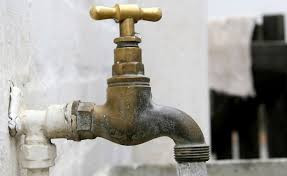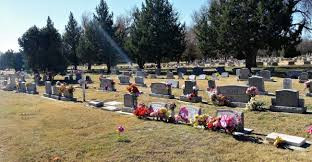
AS Zimbabwe grapples with the poly-crisis of rampant climate change, water scarcity, pollution and food insecurity, local populations within mining communities are increasingly bearing the brunt of environmental degradation, dewatering of vital groundwater and surface water resources caused by mining activities.
From lithium and chrome to gold extraction, these operations have introduced significant pollutants and dewatering into our rivers and groundwater, leaving communities struggling to access water for drinking purposes and irrigation initiatives.
Communities have been side-lined in the management of their local natural resources and are experiencing negative impacts from these significant investments in their areas.
In light of these pressing challenges, the Community Water Alliance (CWA) is proud to announce the launch of the FAIR Mining Project, designed to foster accountability, integrity, and responsibility in the mining sector to enhance water security in Zimbabwe.
This project seeks to address these problems towards social and environmental rights and climate justice.
The FAIR Mining Project is a comprehensive initiative whose aim is to improve water resource management and environmental protection in mining communities and push towards better health and livelihoods and improved climate resilience.
The project recognises that the mining industry, while contributing to the economy, poses severe risks to our natural resources and the well-being of surrounding communities.
With the increasing frequency of droughts exacerbated by climate change, the urgency to address water security in these regions could not be more critical.
- ‘Residents charged for unconsumed water’
- Parched paradise: How Harare's water crisis is drowning dreams, deepening disparities
- Harare residents move to block privatisation of water
- Rights groups petition Parliament over planned privatisation of Harare water
Keep Reading
The need for a systematic approach
Mining operations, particularly those exploiting gold, lithium and chrome, are notorious for consuming large volumes of water during their processes.
This raises significant concerns about the sustainability of our water resources, especially in drought-prone regions.
Moreover, the use of harmful chemicals like cyanide has contaminated local water sources, imposing an immense burden on communities forced to invest in costly water purification solutions.
Dewatering, chemical pollution from mineral processing and sedimentation and erosion following land clearance for mining operations are of primary concern given the serious impact these are having on both the quality and quantity of water available to households and small scale farmers in climate vulnerable communities.
This is negatively impacting key indicators especially health, livelihoods and gender equality while drastically reducing resilience to climate change and disasters such as droughts in these areas where 70% of the population mostly rely on subsistence farming.
Given that Zimbabwe relies on mineral exports as a pillar of gross domestic product, investments in the extractive sectors are regularly given priority over social and environmental concerns.
Mining companies are operating without checks and balances, profiting greatly from:
limited independent research and data on the external costs of mining operations
a weak regulatory environment including legal and policy gaps and poor enforcement
centralised decision-making and governance
weak social movements and an uninformed and often passive citizenry.
The FAIR Mining Project aims to systematically assess these challenges and address the underlying causes of pollution and unsustainable water use.
The project will focus on four key objectives:
Evidence generation, dissemination and utilisation: We will evaluate the legal, policy, regulations, institutional frameworks and accountability mechanisms governing water resources in the mining sector.
By understanding how policies are implemented and enforced, gaps are identified and necessary reforms are proposed.
Through thorough assessments of pollution levels and overall water quality, the project will document the extent of contamination in mining communities.
This data will be critical in advocating for cleaner practices and stricter regulations.
Advocacy, building informed and empowered network of citizen groups, local leaders and media: Through capacity building the project will enable holding mining companies accountable on sustainable water resource management and environmental protection.
Investigating access to safe water: Access to safe water, sanitation and hygiene facilities is essential for both mining workers and surrounding communities.
Investigations will highlight disparities and propose solutions to ensure equitable access.
Examining environmental impact: The project will explore how mining activities affect natural resource protection and environmental conservation, ensuring that future mining practices are sustainable and responsible.
Collaborative framework
The FAIR Mining Project will be implemented through a dedicated Project Steering Committee, chaired by the Environmental Management Agency and comprising representatives from various government ministries and academic institutions.
This collaborative approach is essential for fostering transparency and accountability.
By bringing together diverse voice from local communities to mining companies and government authorities, the project will create a shared understanding of water security issues and develop collective solutions.
Monitoring and evaluation are integral to the project’s success.
The CWA is committed to adhering to rigorous evaluation standards to ensure that our findings are credible and actionable.
Monthly progress reports and review meetings will track the project’s impact, while case studies will capture valuable lessons learned.
This iterative process will allow us to adapt our strategies as needed and ensure that we are making meaningful progress toward our goals.
Empowering communities
At the heart of the FAIR Mining Project is a commitment to empowering communities.
The project will help informed decision-making and participatory research methodologies will be vital for fostering sustainable practices.
By engaging local populations in the research process, the project ensures that their voices are heard and their needs are prioritised.
This empowerment will not only help communities address current challenges but also equip them with the tools and knowledge needed to advocate for their rights in the future.
As we navigate the complexities of mining and water management in Zimbabwe, the FAIR Mining Project represents a significant opportunity for systemic change.
With the upcoming RAMSAR Convention COP 15 and ongoing policy reviews, it poses a unique chance to prioritise water security and environmental protection on both national and international stages.
Critically, an important window of opportunity has opened to leverage research and data and community engagement to meaningfully address water-related issues given the ongoing policy reviews by Government of Zimbabwe covering the Water Act [Chapter 20:24], Wetland Policy, the Environmental Management Act [Chapter 20:27] and the Mines and Minerals Act as well as action plans contained in the National Development Strategy 1, where priority is given to reclamation of degraded lands.
CWA will lead a session for civil society organisations at the 3rd Pan-African Implementation and Partnership Conference (PANAFCON 3) on water, which will held from May 27-29 2025 in Zambia.
The conference is meant to shape priorities for post 2025 Africa Water Vision and Policy.
This continental event offers an opportunity to leverage research findings to influence water vision and policy of Africa and drive key messaging to influence agendas for environmentally sensitive mining operations.
A call to action
The FAIR Mining Project is more than just a research initiative; it is a call to action for all stakeholders involved in the mining sector.
Mining companies, government authorities, and community members are urged to collaborate in safeguarding water resources.
The health and well-being of communities depend on the decisions made today.
By fostering accountability, integrity, and responsibility, the project will pave the way for a more sustainable and equitable future for all Zimbabweans.
As the project embarks on this journey within mining districts, communities are urged to remember that project efforts are not just about addressing the immediate challenges posed by mining; but are about ensuring that future generations have access to clean, safe water.
Together, the project can turn the tide on water pollution and secure a brighter future for Zimbabwe’s mining communities in terms of water resource use and allocation.










